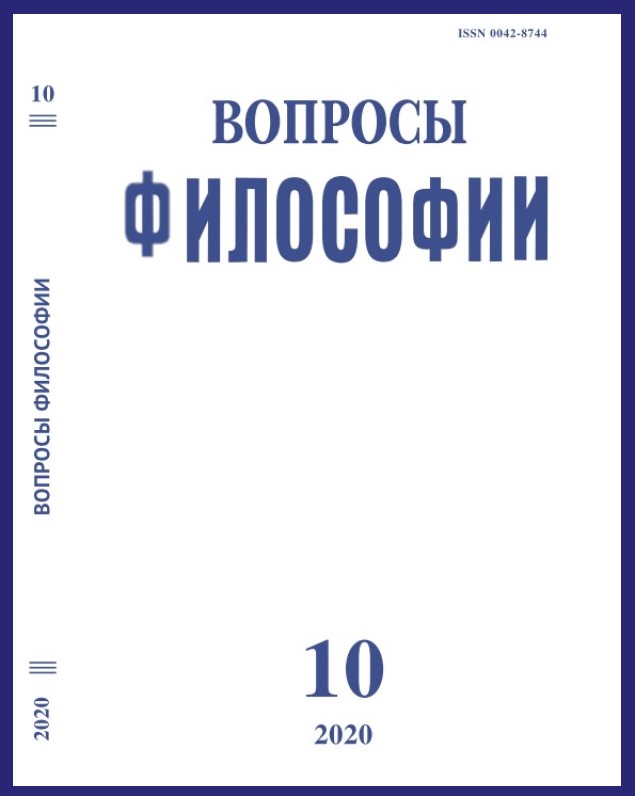Mass Consciousness in Philosophical Tradition and in Modern Interpretations
DOI:
https://doi.org/10.21146/0042-8744-2020-10-46-56Keywords:
mass consciousness, philosophical tradition, modern interpretations, signs, methodology, synergetics, psychoanalysis, archetype, game, mass culture, integralityAbstract
The article discusses the relevance of studying the tradition of philosophical understanding of mass consciousness, which includes certain key concepts and ideas often perceived outside of integrative manifestations and real significance. The author designates philosophical and psychological tradition adjoining it (F. Nietzsche, G. Lebon, Z. Freud), which allows to generalize the ideas about the signs of mass consciousness: the attraction to stability, the need for simplicity, the ability to implement pragmatically determined actions, the willingness to accept negative life impulses, impulsiveness, categoricity, conservatism, physiologism and pragmatism. The author sees the methodology of studying mass consciousness as relevant and rooted in the interdisciplinary tradition not only in sociology (B. Grushin, J. Toshchenko); emphasizing the philosophical dominant of the interpretation of mass consciousness, comparing the manifestations of actors and the mass, we suggest turning to the principles of synergetics, which allows us to look at culture without evaluating unambiguity, taking into account many contradictory and seemingly chaotic practices (I. Prigozhin, M. Kagan, V. Arshinov, V. Budanov, B. Pruzhinin, A. Ogurtsov, S. Kurdyumov). The article emphasizes the methodological significance of special attention to the archetype as a primarily philosophical concept (K.-G. Jung, S. Averintsev, E. Kassirer) and generalizes the philosophical tradition of forming the triad: mass consciousness – mass culture – game, where the game acts as an invariant of the paradoxically present freedom in the mass consciousness (H. Ortega y Gasset, P. Gurevich, Y. Huizinga, E. Byrne, Yu. Lotman). The conclusion is made: the rejection of straightforwardness of assessments is a productive perspective for studying the philosophical tradition and modern interpretations of mass consciousness, which is an integral phenomenon

